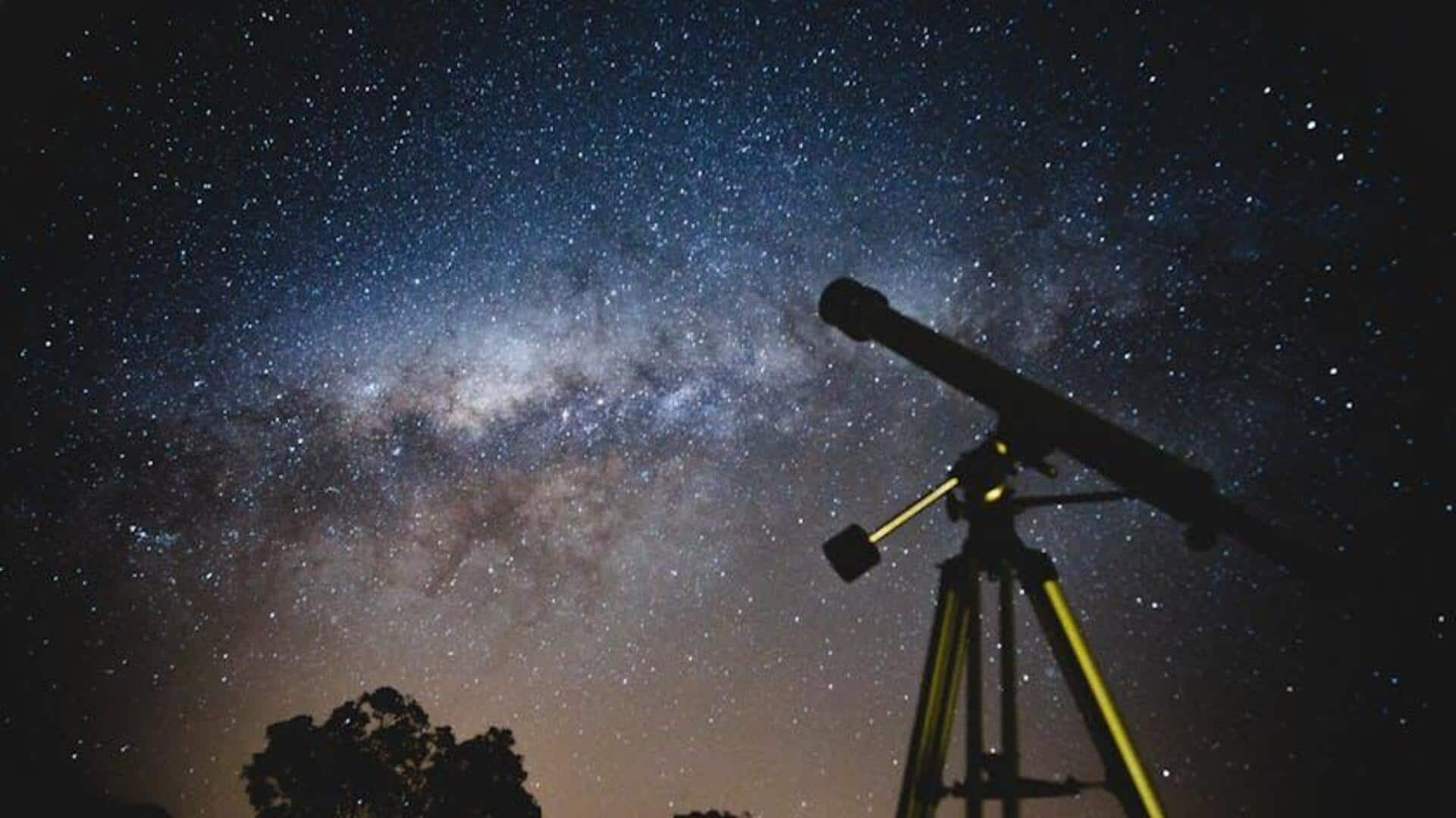
Interactive astronomy workshops: Stargazing with nomads
What's the story
Stargazing meets education on an epic scale with interactive astronomy workshops in the great outdoors. Held in remote locations away from city lights, these workshops offer a unique opportunity to learn about the stars, planets, and constellations from experts and local nomadic guides. Participants will experience the ancient art of celestial navigation and cosmic storytelling, which has guided travelers for centuries.
Setting
Embrace the night sky in remote locations
Picking a remote location is key as it guarantees minimal light pollution and therefore clearer skies. Many workshops occur in deserts or high-altitude areas where the air is thinner and there is less light pollution, providing the best conditions for observing celestial bodies. Plus, these locations offer participants the chance to escape the hustle and bustle of city life and immerse themselves in the tranquility of nature.
Guides
Learning from nomadic astronomers
Nomadic cultures possess a deep-rooted bond with the stars, relying on them for navigation and timing of seasons for thousands of years. In these workshops, nomadic astronomers impart their rich cultural heritage and cosmic knowledge through storytelling and hands-on guidance. This cultural exchange fosters a greater appreciation for the diverse ways in which humanity observes and harnesses the power of the stars.
Observation
Hands-on telescope experience
A highlight of the astronomy workshop is the telescope observation sessions. Participants learn to navigate the universe with telescopes, setting up and using these powerful tools to witness distant galaxies, nebulas, planets, and moons up close. This practical approach breaks down complex astronomical concepts into digestible experiences, making the wonders of the cosmos accessible to everyone, even without a background in physics or math.
Capturing moments
Photography under the stars
Astrophotography enthusiasts can benefit from numerous workshops that offer dedicated sessions for mastering the art of photographing the night sky. From understanding long exposure settings to framing celestial events like meteor showers or planetary alignments, you will not only bring home memories but also amazing photographs that capture the beauty of the universe.
Preservation
Sustainable stargazing practices
A key component of these workshops is learning to stargaze sustainably, ensuring that our enjoyment of the stars doesn't damage natural environments or contribute to light pollution. Teachers instill responsible practices like utilizing red-light flashlights, which preserve both our night vision and the tranquility of wildlife. That way, future generations will also get to experience the magic of pristine night skies!